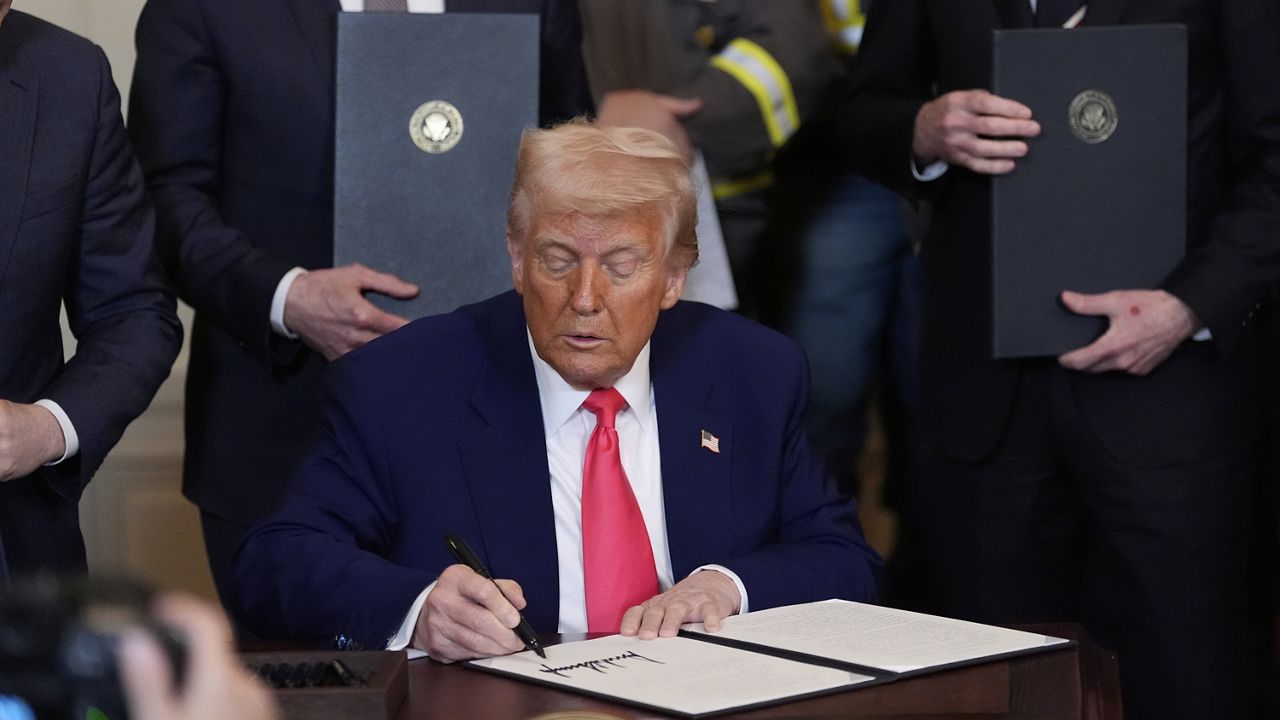With President Joe Biden ramping up his campaign fundraising and his Republican rivals criss-crossing the country to try and shore up primary support, the 2024 presidential election is beginning to take shape.
But a political forecast released this week predicts that the 2024 election will likely be decided by a few key states.
Of the 538 Electoral College votes up for grabs, Kyle Kondik, managing editor at Sabato's Crystal Ball at the University of Virginia's Center for Politics, said the race could come down to just 43 spread across four states: Arizona, Georgia, Wisconsin and Nevada.
"There really aren't that many true swing states," Kondik told Spectrum News. "Only seven states were decided by less than three points in 2020."
Kondik, who has analyzed elections at Center for Politics for more than a decade, just released his first look at the 2024 Electoral College map.
Aside from those four states, Kondik sees Michigan and Pennsylvania as competitive, but trending Democratic, and North Carolina as being closely contested but currently leaning Republican.
"As of right now, we're sort of expecting a lot of continuity from 2016 and 2020 in 2024, and ultimately again, a pretty competitive election, but not that many states that are super competitive," Kondik said.
Kondik noted that five of the last six presidential elections have proven to be fairly competitive and determined by a small number of states, while blowout victories, like President Ronald Reagan's double-digit reelection win in 1984, are becoming increasingly rare.
Because the 2024 campaign is still in its early stages, Kondik said his ratings are based more on recent results and trends in key battleground states rather than polling.
"Generally speaking, polling is not all that predictive this far out," he said.
The ratings also help determine where presidential candidates will spend time physically campaigning and where they will spend tens of millions of dollars on television and radio advertisements.
States like Florida and Ohio used to be considered legitimate battlegrounds but have trended more Republican in recent years, while formerly red states like Georgia and Arizona are becoming highly competitive.
Kondik said that right now, Biden and Trump remain their parties' frontrunners, but that could change given their age and Trump's legal challenges. If not, he said, next year's race will feel familiar.
"We're in some ways looking at sort of the third rerunning of the 2016 election and the basic fault lines it showed, and the basic political coalitions that it showed. And if that is indeed the case, the battlefield is really not that big; I don't think," he said.




?wid=320&hei=180&$wide-bg$)



